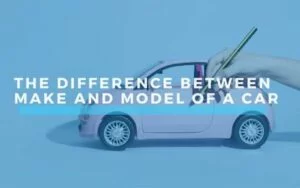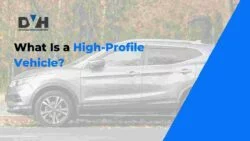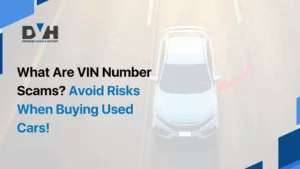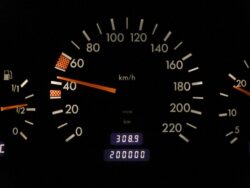VIN cloning is a serious crime that affects buyers and sellers, involving vehicle identity stealing to disguise a salvaged or stolen vehicle. This practice can lead to significant financial losses and legal troubles for unsuspecting individuals.
Understanding how VIN cloning works and how to prevent it from happening to you is important to avoid your VIN being stolen.
What is VIN cloning?
VIN cloning, also known as car cloning, happens when criminals use a Vehicle Identification Number (VIN) from a legally registered car to hide the identity of a stolen or salvaged vehicle. They replace the serial plate of the stolen car with one containing the number of a validly registered vehicle of similar make, model, and year from another location.
VIN cloning can make the troubled car seem perfect, especially when it’s put on an online listing, when buyers sometimes cannot physically examine the unit. The buyer, unaware of the car’s true history, may face legal issues, including the confiscation of the vehicle and responsibility for any outstanding loans.
How Does VIN Cloning Work?
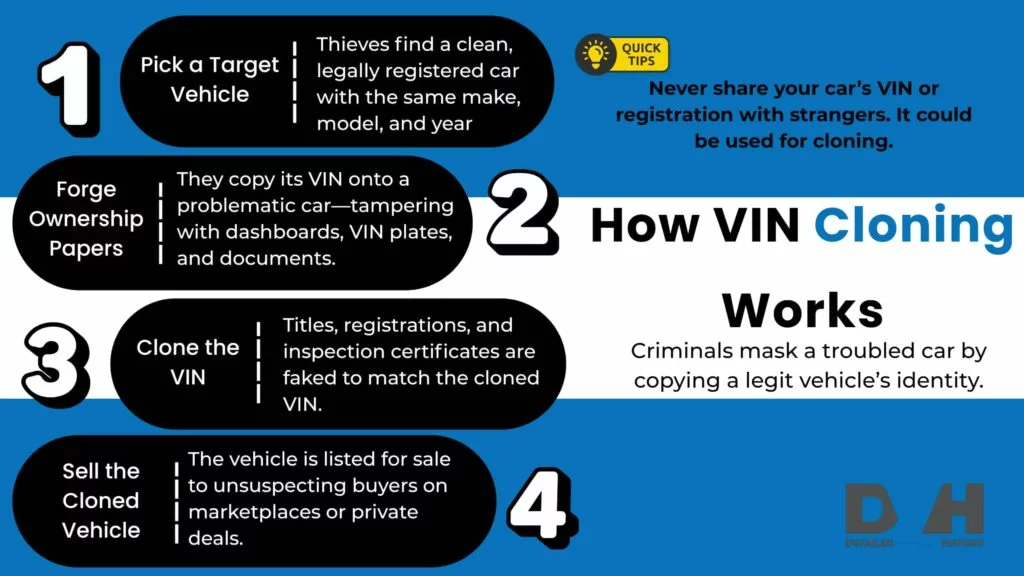
The process of cloning VINs typically involves a few steps. Here’s what you need to know about how those VIN thieves do their thing.
Identifying the Target Vehicle
Criminals begin to select a legally registered car that fits their year, make, and model criteria. The “targeted” vehicle usually serves as the identity that later will be copied into their vehicle, which has many problems to mask.
Cloning the VIN
Once they have found their targeted car, the thieves proceed to put the VIN from a non-troubled car into their problematic car. This process often includes forging VIN plates, tampering with dashboards, and creating fake ownership documents to match.
Faking Ownership Documents
Before the thieves put their vehicle on sale, they will need to fake the ownership documents to ensure that the vehicle seems legit by forging titles, registrations, and even inspection certificates. These fake documents help pass the car off as legally owned and properly maintained.
Sell the Vehicle
After the thieves have successfully cloned the vehicle and faked the documents, the car is now ready to be put on sale on marketplaces or by private sellers.
To avoid a car’s VIN being swapped, don’t share the car registration or the VIN with other parties unless you know them personally and their intention is good.
Real-Life Cases of VIN Cloning
VIN cloning is not just some theoretical threat, it happened in real life. For instance, in Florida, the FBI reported that more than 1,000 cloned cars were sold to buyers in 20 states and several countries, resulting in estimated losses of over $27 million to consumers, auto insurers, and other victims.
Another case of VIN cloning also happened to Maria Bauter. She purchased a 2019 Toyota 4Runner for $40,000, only to discover nearly three years later that the car was stolen and had a cloned VIN. After this discovery, she faced significant challenges, including the confiscation of her vehicle and the initial denial of her insurance claim
Before you decide to buy a used vehicle, be sure to decode the VIN and get a vehicle report to avoid buying a vehicle with a fake or cloned VIN.
How to Spot a Cloned Vehicle
Detecting a cloned vehicle can be challenging, but here are clear signs that a car may be cloned:.
- Price Too Good to Be True: If the vehicle is priced significantly below market value, it may be a red flag
- Inconsistent VINs: Check that the VIN on the dashboard matches the one on the door frame and vehicle documents.
- Seller Avoids Questions: Be cautious if the seller is reluctant to provide information or allows only cash transactions.
- Title Issues: Be wary of vehicles with out-of-state titles or those that have been recently issued.
Remember to always conduct thorough vehicle inspections by yourself, and if you are unsure, you can hire a mechanic to inspect the vehicle physically.
Read also: How to Check if a Car Has Been in an Accident
How to Protect Yourself From VIN Cloning
There are some easy ways to protect yourself from VIN cloning. Here’s how you can do it to avoid getting scammed.
Get Vehicle History Report
Use a reputable website to get the vehicle history report, so there is no chance of stealing the VIN and card information.
Verify the VIN Consistency
You need to verify the VIN consistency to make sure that it matches the one written on its registration paper or any other location where the VIN is stamped in the car.
Be Skeptical of Suspicious Sellers
Avoid purchasing a vehicle from a random and suspicious dealer or private seller, whether it’s online or offline, without further vehicle inspection and verification.
Consult with Authorities
If in doubt, contact your local Department of Motor Vehicles (DMV) or law enforcement for assistance.
These precautions can help you avoid becoming a victim of VIN cloning.
What To Do If You Suspect VIN Cloning
If you suspect the vehicle’s VIN is cloned, you need to take further steps before something happens to the vehicle.
Cease Communication
Immediately stop all contact with the suspected scammer. Avoid providing any more personal information, and don’t agree to meet or finalize the transaction under any circumstances.
Report to Authorities
Contact your local police department and the Department of Motor Vehicles (DMV) as soon as possible. Reporting the incident can trigger an investigation and may help recover stolen property.
Monitor Your Information
If you’ve shared personal or financial details, watch for signs of identity theft. Check bank accounts, credit reports, and email activity for anything unusual or unauthorized.
Inform Others
Warn friends, family, and online communities about your experience. Sharing the story may prevent others from falling into the same trap or buying a cloned vehicle unknowingly.
Act Quickly for Better Results
Fast action gives authorities the best chance to track the criminals. Prompt reporting also helps limit the spread of VIN fraud within the used car market.
Read also: Is It Worth Repairing Your Car After an Accident? Find Out!
Conclusion
VIN cloning is a growing concern in the automotive buying and selling market, posing risks to both buyers and sellers. By staying informed and vigilant, you can protect yourself from fraud. Always use trusted sources for vehicle history reports, verify VIN consistency, and be cautious of unfamiliar sellers. Taking these steps will help ensure a safe and secure car transaction.
Frequently Asked Questions
Are electric or newer vehicles more at risk of VIN cloning?
Yes, modern and electric vehicles are often targeted because they have high resale values. Thieves may clone VINs from similar vehicles in different states to make stolen EVs seem legally owned and more appealing to buyers.
Can a cloned VIN pass a vehicle history check?
Yes, if criminals use a legitimate VIN from a clean vehicle, the history report may look normal. That’s why checking the VIN in multiple places on the car and on documents is crucial for spotting inconsistencies early.
What legal trouble can I face if I unknowingly buy a cloned car?
Even if you didn’t know the car was cloned, law enforcement can still seize the vehicle. You may also lose the money you paid and face issues with your insurance company during claims or registration.




